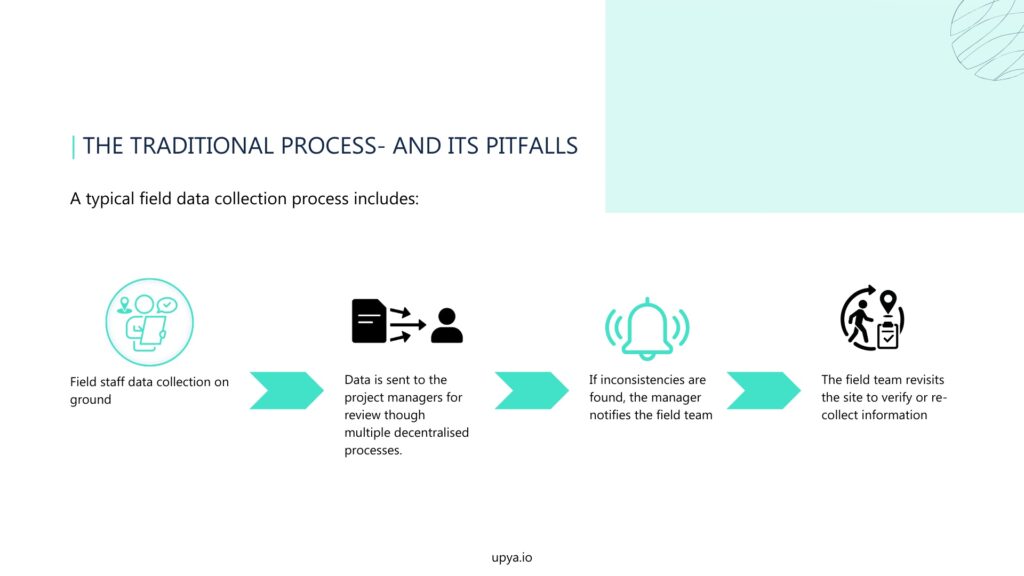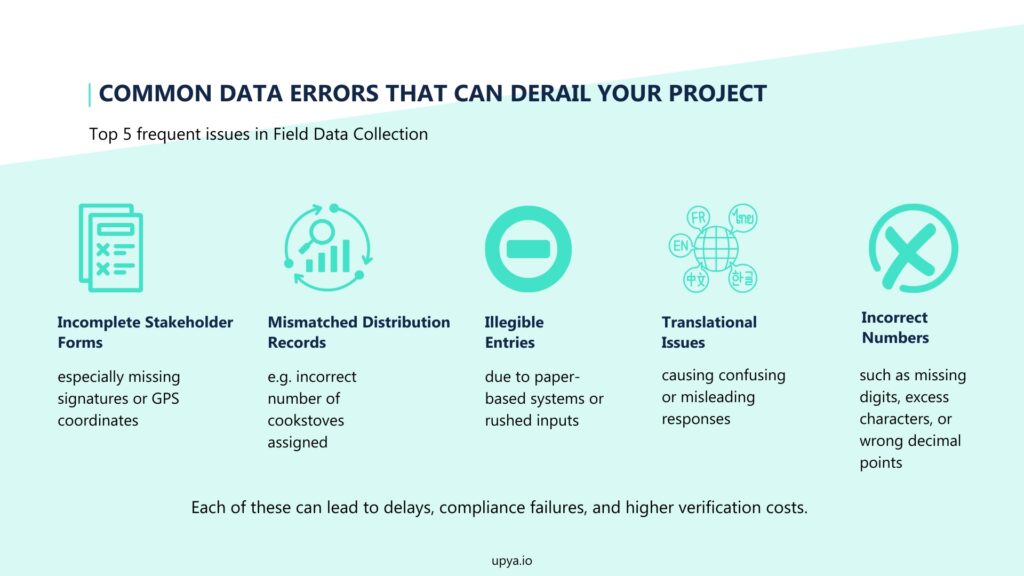Monitoring carbon credit remotely feels like assembling a puzzle without seeing a full picture. When your project’s field team is spread across rural areas—onboarding households or collecting data—ensuring accurate information flows smoothly from the field to the office is anything but simple.
Despite cultural barriers, we have made significant progress in adopting technology for carbon project data collection. Even in remote areas, people are becoming more comfortable with digital tools. The shift from paper to digital is making data collection more transparent and accurate. Still, digitizing fieldwork is only part of the solution.
The Real Challenge: Consistent and Reliable Field Data
The real challenge lies in ensuring that all information is gathered consistently and accurately by field staff. Implementing a simple system with reinforced and standardized data collection protocols is key to managing project complexities. Without this, projects face unforeseen delays, data errors, or even jeopardized certification.

The issue isn’t with the sequence—but with the fragmented tools and communication channels used to carry it out. This results in endless back-and-forth via emails, calls, and messages, making workflows slow and error-prone.
Compounding the issue:
- Projects are often passed between managers, risking loss of vital information
- Field teams juggle multiple responsibilities, increasing chances of data mismatch or duplication
- Delays and mistakes are often discovered too late, risking certification and carbon credit issuance
Upya’s Approach: Centralized, Structured, and Field-Tested
At Upya, we have worked with project developers and field teams to reimagine the process of monitoring carbon credit remotely. Our breakthrough? A centralized due diligence process embedded into the system—what we call the Beneficiary (or Client) Stage.
Here’s how it works:
- Field staff collect offline data using the Upya mobile app
- Data is synced to a centralized platform
- Project developers review submissions in real time
- A due diligence approval stage highlights discrepancies or missing info
- Project managers can trigger in-app notifications to field staff pointing to the exact data to verify
- No data is lost or overwritten—everything remains traceable by who collected it, when, and where
This system removes the guesswork. It’s faster, more accurate, and far less frustrating.
Why This Matters: Carbon Projects Are Long-Term and Complex
Unlike short-term projects, carbon projects span several years, involving multiple verification rounds, asset deliveries, and stakeholder changes. Each stage introduces new data, new risks, and new complexities.
For example:
- What happens when a cookstove needs to be replaced? How do you track it without double-counting?
- What if a household changes their address or drops out? Can your system update this without causing confusion?
Upya’s system ensures that your workflow adapts to real-world changes while maintaining data clarity.

One Dashboard, Complete Visibility
With Upya’s centralized due diligence process, project managers now have a single source of truth—making monitoring carbon credit remotely more accurate, efficient, and reliable.
If something’s off, a manager can send an instant, app-based prompt to field staff. The result? Fewer mistakes, faster fixes, and smoother progress toward certification.
In Conclusion: Your Data Deserves Due Diligence
Managing field operations remotely will always have challenges. But with the right tools, you can transform how data flows from the field to your office—and your auditors.
At Upya, we’re not just digitizing processes. We’re bringing clarity, efficiency, and accountability to every step of carbon project implementation.
If you are a project developer looking to streamline your data operations, book a demo with us today —because good data isn’t just a requirement, it’s your project’s foundation.
